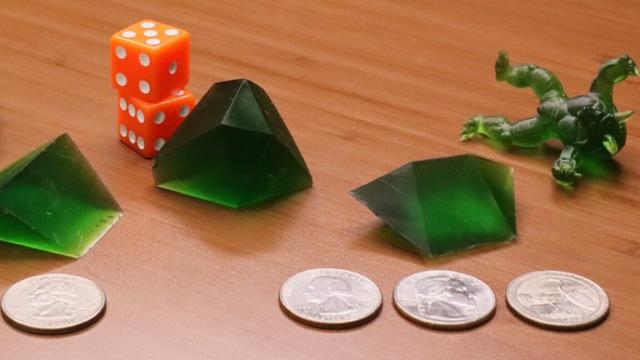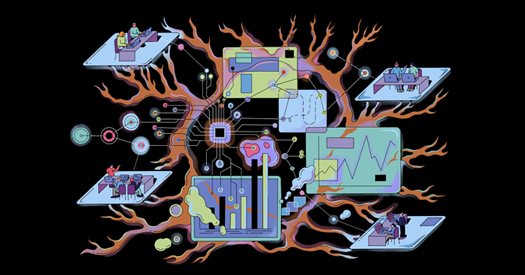#computationalscience
https://www.europesays.com/us/30960/ Leveraging federated learning and edge computing for pandemic-resilient healthcare #ComputationalScience #ComputerScience #Computing #ContactTracing #CyberAttack #DeepLearning #DeepTransferLearning #EdgeComputing #Epidemiology #Facemask #FederatedLearning #HumanitiesAndSocialSciences #multidisciplinary #Science #SocialDistancing #Technology #UnitedStates #UnitedStates #US
Ready to shape the future of #ComputationalScience?
We’re inviting researchers like you to mentor student-led projects this July. Just 2-3 hours of commitment and no prep needed!
This is your chance to give back and grow! Learn more and sign up to #volunteer https://neuromatch.io/mentoring/
Be a #volunteer reviewer for the #ImpactScholars Program; a global initiative supporting early-career #ComputationalScience researchers.
Review short proposals in one of the following areas:
- #ComputationalNeuroscience
- #DeepLearning
- #NeuroAI
- Computational Tools for #ClimateScience
Reviews take place between Sept 3–17
~5 hrs/week
Your time can help share someone’s scientific journey! Learn more & sign up to volunteer: https://neuromatch.io/volunteer/
We're seeking #volunteer reviewers for the #ImpactScholars Program; a global initiative supporting early-career #ComputationalScience researchers.
We need your help to assess short research plans submitted involving computational tools for #ClimateScience.
Reviews take place between Sept 3–17
~5 hrs/week with a review rubric provided
Your time can help share someone’s scientific journey! Learn more and sign up to volunteer: https://buff.ly/3XZ8gqv
At Neuromatch, we’re not just educating. We’re investing in future global scientific leaders.
After taking one of our Neuromatch courses, what comes next? Our Impact Scholars Program supports a diverse, globally minded community of computational researchers through hands-on research, mentorship, and professional development.
Read more in the Neuromatch 2024 Impact Report: https://drive.google.com/file/d/1xBWjjxcYzLNwHgyR9wkGjnMt2Y7bCzVA/view
Since 2020, Neuromatch has trained 11,625 students across 122 countries, with 54% from low- and middle-income economies. We have also hosted 17 language pods to help meet the needs of students.
This is what global access to computational science looks like!
Read the full report: https://drive.google.com/file/d/1xBWjjxcYzLNwHgyR9wkGjnMt2Y7bCzVA/view?pli=1
Join our global community and sign up for our mailing list: https://neuromatch.io/mailing-list/
The outcome prediction method of football matches by the quantum neural network based on deep learning https://www.rawchili.com/nfl/108013/ #ComplexInformation #ComputationalScience #ComputerScience #Football #FootballMatch #HumanitiesAndSocialSciences #InformationTechnology #multidisciplinary #MultilayerPerceptron #OptimizedQuantumNeuralNetwork #QuantumBit #science #SuperpositionAndEntanglementProperties
Your next gaming dice could be shaped like a dragon or armadillo https://arstechni.ca/5RvQ #computationalscience #Computersimulations #shapeanalysis #probability #3Dprinting #geometry #Science

Ready to shape the future of #ComputationalScience?
This July, Neuromatch Academy is back and we’re inviting researchers like you to
mentor student-led projects.
As a Project Mentor, you’ll: Build global, cross-disciplinary connections
Join a vibrant, mission-driven community
Add mentorship to your CV & LinkedIn
Support the next generation of computational scientists!
This is your chance to give back and grow! Learn more and apply: https://airtable.com/app55efILsjdRZlcd/pagQSQCw4CH9W7wjX/form
Big year. Bigger impact.
Last year, Neuromatch supported 2,000 students across 100+ countries and made a huge impact! The Neuromatch 2024 Impact Report is out and you can read it here: https://buff.ly/gsnzRS0
Ready to shape the future of #ComputationalScience?
This July, Neuromatch Academy is back and we’re inviting researchers like you to mentor student-led projects.
As a Project Mentor, you’ll: Build global, cross-disciplinary connections
Join a vibrant, mission-driven community
Add mentorship to your CV & LinkedIn
Support the next generation of computational scientists!
This is your chance to give back and grow! Learn more and apply: https://buff.ly/Ap3TlVI
Numerical Linear Algebra Class in Julia TUM
With 11,000+ graduates across 120+ countries, Neuromatch is committed to open education, global career development, and amplifying the leadership of LMIC scientists in field building.
Let’s keep building this future together. Join our community today: https://neuromatch.io/mailing-list/
Two key takeaways stood out at #SONA2025: Open-access datasets from Africa are emerging. But barriers to broader data sharing remain.
Equitable, collaborative partnerships between high- and low-income research communities are essential to global progress.
Neuromatch was proud to attend #SONA2025 and host a booth at the Society of Neuroscientists of Africa conference in Marrakesh, Morocco. We left energized by the depth of innovation and powerful conversations around building a more inclusive future for neuroscience.
Also, half of them are women, which is much better than the averages in natural sciences (not to speak of engineering). The main reason for this is that the program taps into Bachelor programs with a large number of women, Biology for example.
My opinion today is that this is a very interesting strategy to increase the number of women in tech. Most talk is about trying to get the numbers in, say, Computer Science or Electrical Engineering up (which are abysmal). But there is the much lower hanging fruit of looking at programs with a large number of women, and to then increase the amount of programming and mathematical skills that these students learn.
2/3
In autumn 2023, two new master programs started at the faculty of science at #LundUniversity namely Computational Science (strong math background) and Applied Computational Science (weak math background). The students are now working on their master thesis and recently, we had a full day where all reported on their progress. To formulate the goal of the program succinctly, it is to have the students learn state of the art techniques for modelling and simuation and apply these to interesting problems. And, what can I say, the concept really works. It was a joy to see.
Here are some of the applications they are working on:
Paper production
Cooling of data centers
Cancer detection
Effect of microparticles on pregnant women
Tree ring series
Tree modelling in climate simulations
4D X-Ray
Peptides in Pharmacology
Room acoustics
And the methods are extremely varied as well. From numerical solvers for partial differential equations, to numerical solvers for neural networks, to purely data driven neural network approaches, and from differential equation based modelling to pure data analysis.
The advisors come from all institutions of the faculty of science, and from local companies.
1/3
Neuromatch is at the Society of Neuroscientists of Africa conference! #SONA2025
Stop by the booth to grab some stickers, scan the QR code to join our community, and chat about open education, mental health & AI, or just good science!
How a Problem About Pigeons Powers Complexity Theory | Quanta Magazine…
When pigeons outnumber pigeonholes, some birds must double up. This obvious statement — and its inverse — have deep connections to many areas of math and computer science... #mathematics #computerscience #complexitytheory #gametheory #computationalscience

